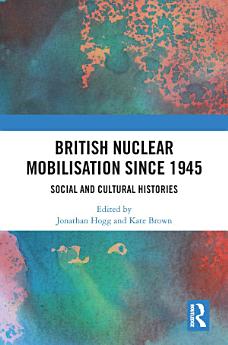British Nuclear Mobilisation Since 1945: Social and Cultural Histories
About this ebook
In the years after 1945, the British government mobilised money, scientific knowledge, people and military–industrial capacity to create both an independent nuclear deterrent and the generation of electricity through nuclear reactors. This expensive and vast ‘technopolitical’ project, mostly top-secret and run by small sub-committees within government, was central to broader Cold War strategy and policy. Recent attempts to map the resulting social and cultural history of these military–industrial policy decisions suggest that nuclear mobilisation had far-reaching consequences for British life.
The chapters in this book were originally published as a special issue of Contemporary British History.
About the author
Jonathan Hogg is Senior Lecturer in Twentieth Century History at the University of Liverpool, UK. He is the author of British Nuclear Culture: Official and Unofficial Narratives in the Long Twentieth Century (Bloomsbury, 2016), and editor of the e-textbook Using Primary Sources (Liverpool University Press, 2017).
Kate Brown is Professor of Science, Technology and Society at Massachusetts Institute of Technology, Cambridge, USA. Her numerous books include Plutopia: Nuclear Families in Atomic Cities and the Great Soviet and American Plutonium Disasters (Oxford, 2013), Dispatches from Dystopia: Histories of Places Not Yet Forgotten (University of Chicago Press, 2015), and most recently Manual for Survival: A Chernobyl Guide to the Future (Allen Lane, 2019).






